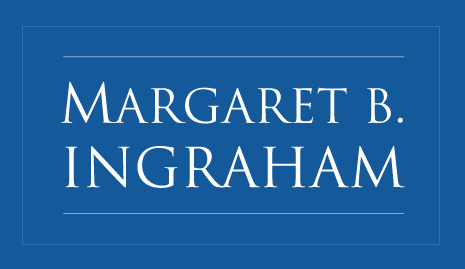Yesterday I chuckled when I heard myself say to my dog the same thing I would have to a disobedient child. In response to my growing exasperation that my usually compliant pup had ignored me after I had used the “come” command several times with varying levels of firmness in my voice, I phrased my next directive in the form of a frustrated question. “Did you hear me?” I implored. He did not respond any less defiantly to the question than he had to the familiar command. After the incident in which I finally got him to comply with my instruction, I’m sure he never gave it another moment of thought. But I certainly did.
At first blush that one instance of doggy disobedience might not seem deserving of my rethinking, and certainly not of my calling it to your attention here. As an isolated incident, it probably isn’t. But another story emerges when we consider it as an emblematic example of the nature of “right relationships.” And I do.
Frankly, the question that I put to my dog is the same one that has been addressed to me innumerable times throughout my life. You might want to ask yourself whether or not the same inquiry has been made of you. I am going to assume the experience is universal and that your answer is “yes.” Let me state more of the obvious, as well. The question about hearing, as we will be examining it, never refers to the simple physiological functioning of the ear, of course; it always cuts directly to the attitude and response of the one being questioned.
The issue and subject of hearing, listening and responding stand at the center of the biblical narrative and the ongoing life of the people of God. “Hear, O Israel, the Lord your God, the Lord, is One,” we read in Deuteronomy 6:4, a passage well-known to most Jews as the concise credal statement of their faith. It is called the Shema and takes that title from the first word of the sentence.
In Hebrew the root verb for hear is shema. As we have learned, Hebrew words often have many meanings all of which, taken together, give us who read the Bible in translation a more accurate and complete connotation than of any particular “equivalent” chosen in our language. The verb shema is most typically translated in one of the following ways: hear, listen, listen attentively, hearken, obey, and heed. Unfortunately, none of those individual words captures the dual, and critical, understanding that hearing also means heeding when the Hebrew word shema is employed. And it is used frequently in the Hebrew Bible (Old Testament) – 1,188 times to be precise. The first appearance is in Genesis 3 when Adam and Eve “heard the sound of the Lord God” in the garden and hid from it. Why did they hide? Theirs was the story of disobedience, a direct violation of hearing the Lord in the full literal sense of that Hebrew word – hear, listen attentively, obey.
Listening and obeying are what the Master requires of His people as part of the covenantal relationship He designed and desires. When we heed (there’s that word again) those terms, we are blessed; when we do not, we can expect consequences of another kind.
people as part of the covenantal relationship He designed and desires. When we heed (there’s that word again) those terms, we are blessed; when we do not, we can expect consequences of another kind.
In the last blog post we noted the prophet Samuel’s words to rebellious Saul: “To obey –shema — is better than sacrifice.” In the verbal exchange surrounding that, Saul extends His disobedience, even when confronted by the prophet, as he presents disingenuous excuses as to why he disregarded the Lord’s instructions and chose his own “better” way to honor Him, and he blames others before finally admitting the truth and acknowledging his own sin. It is not the first time that Saul has made “unlawful sacrifices.” His repeated noncompliance was deliberate and his intention was self-serving, not God-fearing and obedient.
We can contrast Saul’s protestations to the reaction of David when confronted by the prophet Nathan about the murder of his general and friend Uriah and the taking of his wife Bathsheba for himself. “I have sinned against the Lord,” David responds at that point without any hesitation (2 Sam 12:13). Granted, I am skipping over major portions of an undeniably difficult and complex narrative and I am omitting many of the details of David’s own deliberate scheming and heinous sinning. By doing so, I do not intend in any way to excuse or downplay them. But the focus for us here is not on the acts but on the responses of the actors to the implicit question –even though it is not posed directly in the text – “Did you hear Him?” when they are directly confronted with it.
The human, or life, consequences of failing to listen to and heed the Lord’s requirements of right relationship and behavior were real and serious for both men. Saul lost his kingship. David lost his and Bathsheba’s infant son, and other sons, as well battles and even the opportunity to build the temple to his God. But he never lost any of the promises of the covenant relationship established with him and honored by God.
Covenants, as we have noted before, have terms. There are expectations and responsibilities and obligations for both parties to fulfill. In Exodus and Leviticus and Jeremiah the primary purpose of the agreement is put forth: “I will be your God and you will be my people.” Being our God means being faithful to the promises He made. While we, like David and Saul, will certainly fall short in fulfilling our obligations, He will not fail in His. Timothy eloquently and emphatically emphasizes that abiding truth in his epistle, writing “If we are faithless, He remains faithful, for He cannot deny Himself.” (2 Tim 2:13).
In a sense, that is what His name means. I AM, translated in a way that conveys its full Hebraic linguistic meaning would be this: “I AM who I AM and I AM who I WILL BE and I WILL BE who I AM and I WILL BE who I WILL BE.” In other words, God by nature is both eternal and changeless in His eternality. He will be everlastingly faithful to His many and manifest promises. Among those promises are listening –shema— to the cries of His children, responding to them with justice, providing for them a way to righteousness and redemption.
Over and over again, the great psalmist examines the theme of hearing and responding – on the part of both parties –with eloquence and ardor. Sometimes his poems ring with thanksgiving; other times they beg with urgent supplication; still others they cry in lament. He is a man free to speak with this openness because he knows intimately Him Who listens, Who hears, Who hearkens to the cries of His children.
The question to us, always, is whether or not we do the same. It is a question like the one I asked my dog (and my earthly parents asked me more times than I care to count or admit.) Do we hear the sound of the Lord when he enters our garden or our rubble and how do we respond? For me the best way to answer those questions often is to begin in silence, a reverence that leaves me speechless in the face of perfect holiness and awe.
 Recognizing that His greatness is beyond what our language can express, literally rendered David’s Psalm 65 begins “To You silence is praise, God.” To Him Who quiets the roar of the sea, Whose streams are always filled, Whose fields are mantled with grain, and Whose pastures are clothed with sheep, our attentive silence and listening hearts can be praise. The man after His own has reminded us it is so. And when we render it in obedience, that same God Himself has pledged to be ours– for everlasting.
Recognizing that His greatness is beyond what our language can express, literally rendered David’s Psalm 65 begins “To You silence is praise, God.” To Him Who quiets the roar of the sea, Whose streams are always filled, Whose fields are mantled with grain, and Whose pastures are clothed with sheep, our attentive silence and listening hearts can be praise. The man after His own has reminded us it is so. And when we render it in obedience, that same God Himself has pledged to be ours– for everlasting.
